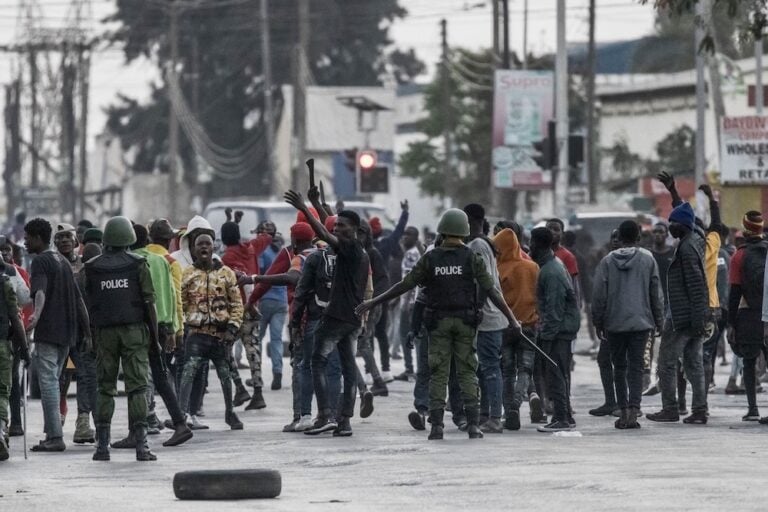(MISA/IFEX) – The Zambian government has published the draft of a proposed Freedom of Information Act and invited comments from the public about its contents. The draft bill was first published in the government owned “Zambia Daily Mail” on 23 February 2001 as an advertisement and in the state owned “Times of Zambia” on 28 […]
(MISA/IFEX) – The Zambian government has published the draft of a proposed Freedom of Information Act and invited comments from the public about its contents.
The draft bill was first published in the government owned “Zambia Daily Mail” on 23 February 2001 as an advertisement and in the state owned “Times of Zambia” on 28 February. In addition, it was circulated to media associations.
According to a memorandum accompanying the bill signed by Attorney General Bonaventure Mutale, the object of the bill is to:
* provide for the right of access to information;
* set out the scope of public information under the control of public authorities, which is to be made available to the public in order to facilitate more effective participation in good governance;
* promote transparency and accountability of public officers.
Section 4 (1) of the bill provides for the opening up of all records held by public officers covered under the proposed act, even if such records were restricted before the commencement of the act.
Section 4 (2) provides that any laws enacted after the commencement of the Freedom of Information Act, with provisions restricting rights and obligations provided under the act, would have no effect unless the restrictions are provided for under the proposed Freedom of
Information Act.
At a workshop held by the Zambia Independent Media Association (ZIMA) on 9 March, participants expressed reservations about several provisions of the draft bill. Among them were parts of Section 8, which allows public officials to claim exemption on the grounds that information sought is “reasonably expected to cause substantial harm to the legitimate interests of Zambia in areas of foreign policy, defence, security, public safety and monetary policy”. Participants felt this could allow blanket denials of requests for information.
Participants also strongly objected to Section 21, which gives the president powers to single-handedly appoint a “Commissioner for Public Information”, whose job would be to administer the proposed Act. The “Commissioner for Public Information” would receive applications for disclosure of information and hear appeals for denial of information by public authorities. The participants instead proposed a five-member commission, to be appointed by parliament.
Another contentious provision of the bill was the thirty-day waiting period after filing a request for information. The participants proposed that this should be reduced to fourteen days.
Participants further proposed that Section 5 of the Act include a sub-section allowing members of the public access to meetings of public authorities, and not just documents held by them, as currently proposed.
Lawyer John Sangwa, who facilitated the workshop, commended the government for making the draft bill available for public scrutiny, but regretted that the 15 March deadline for comment was too short for meaningful input by concerned parties. He called for an extension of the deadline as well as a workshop with participants drawn from government and other stakeholders.
Meanwhile, the government has not indicated when the bill will be presented to parliament.
Background Information
In 1993, a government-appointed “Media Reform Committee” recommended the enactment of a Freedom of Information Act to facilitate access to government information by journalists and other members of the public.
In 1999, in its “Capacity Building Programme for Good Governance”, the government promised donors it would enact a Freedom of Information Act. In its report to the government in 2000, a second government Task Force on Media Law Reform also called for the enactment of a Freedom of Information Act.


